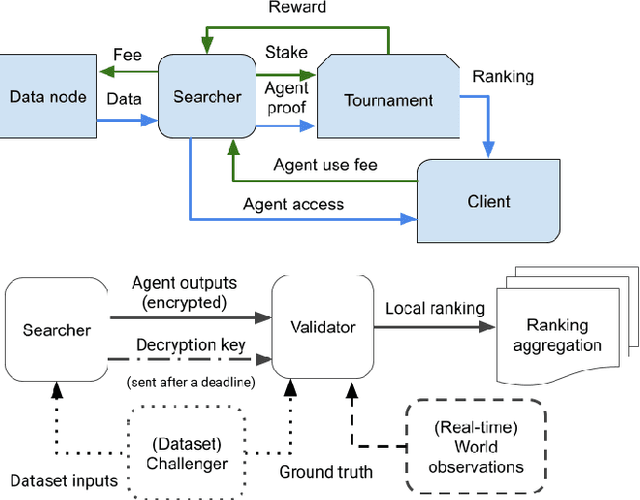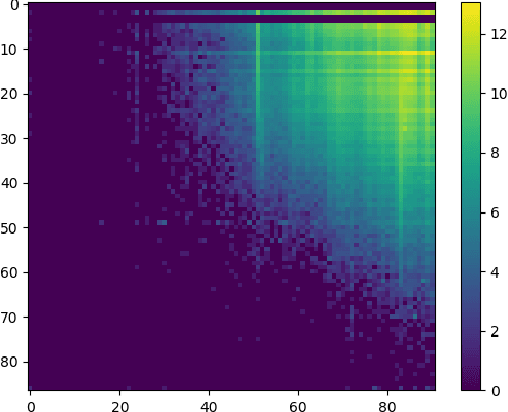Zvezdin Besarabov
Trustless parallel local search for effective distributed algorithm discovery
Apr 02, 2020
Abstract:Metaheuristic search strategies have proven their effectiveness against man-made solutions in various contexts. They are generally effective in local search area exploitation, and their overall performance is largely impacted by the balance between exploration and exploitation. Recent developments in parallel local search explore methods to take advantage of the efficient local exploitation of searches and reach impressive results. This however restricts the scaling potential to nodes within a private, trusted computer cluster. In this research we propose a novel blockchain protocol that allows parallel local search to scale to untrusted and anonymous computational nodes. The protocol introduces publicly verifiable performance evaluation of the local optima reported by each node, creating a competitive environment between the local searches. That is strengthened with economical stimuli for producing good solutions, that provide coordination between the nodes, as every node tries to explore different sections of the search space to beat their competition.
Distributed creation of Machine learning agents for Blockchain analysis
Sep 06, 2019



Abstract:Creating efficient deep neural networks involves repetitive manual optimization of the topology and the hyperparameters. This human intervention significantly inhibits the process. Recent publications propose various Neural Architecture Search (NAS) algorithms that automate this work. We have applied a customized NAS algorithm with network morphism and Bayesian optimization to the problem of cryptocurrency predictions, where it achieved results on par with our best manually designed models. This is consistent with the findings of other teams, while several known experiments suggest that given enough computing power, NAS algorithms can surpass state-of-the-art neural network models designed by humans. In this paper, we propose a blockchain network protocol that incentivises independent computing nodes to run NAS algorithms and compete in finding better neural network models for a particular task. If implemented, such network can be an autonomous and self-improving source of machine learning models, significantly boosting and democratizing the access to AI capabilities for many industries.
 Add to Chrome
Add to Chrome Add to Firefox
Add to Firefox Add to Edge
Add to Edge